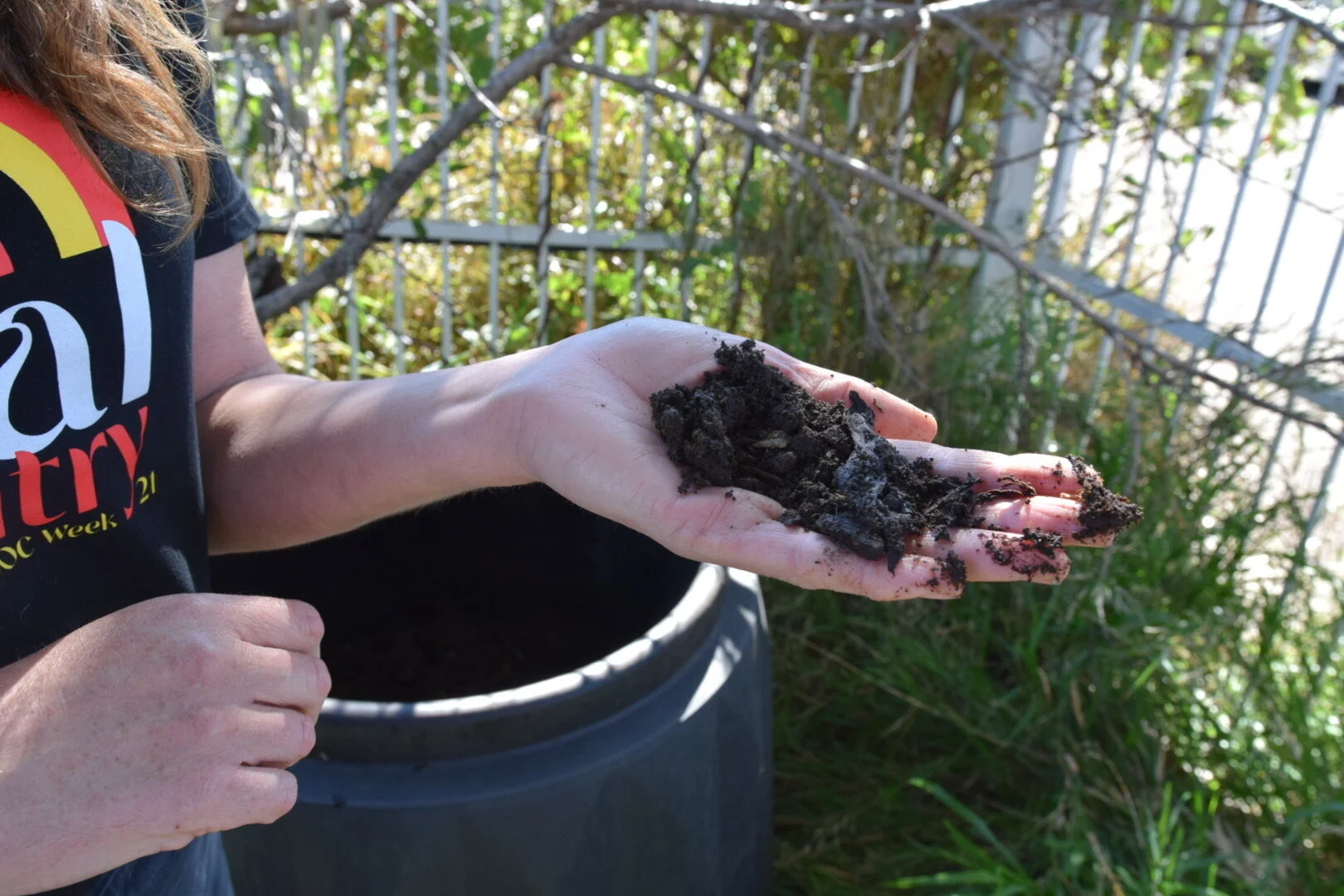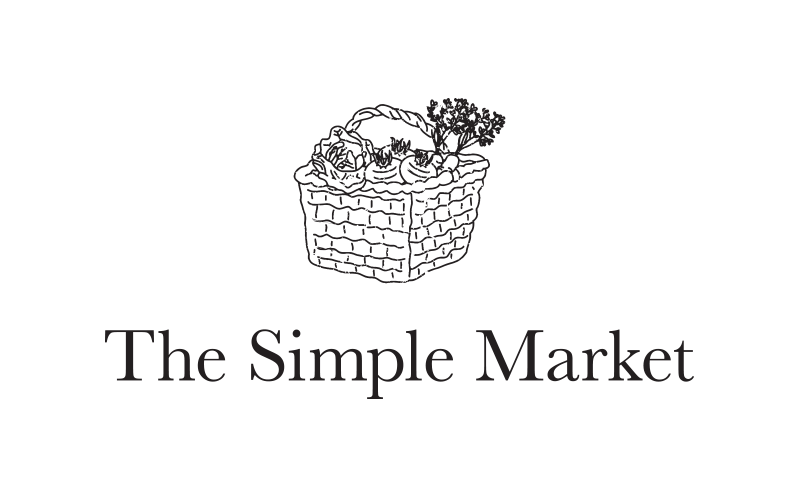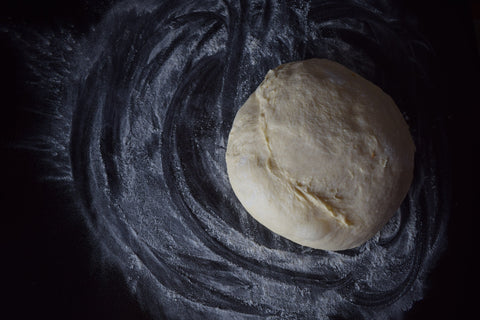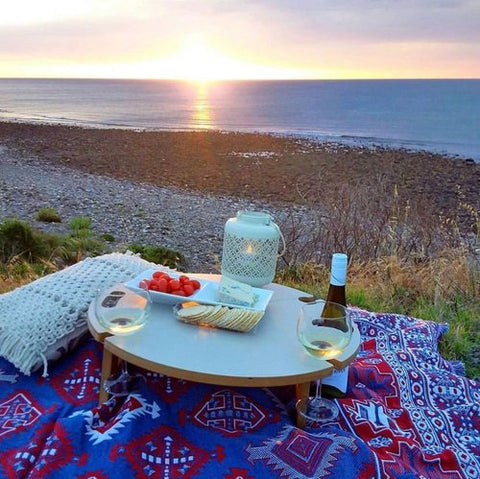We have always had a passion for helping to build a healthier environment for our community. Rich soil and compost play a huge role in that journey, however many of us either don’t know how to start, or are creating compost we aren’t super happy with. Composting is one of those things that everyone should be doing, whether it’s using your kitchen scraps to enrich your backyard soil or developing a fully fledged composting system. Make it easy for yourself, it should be fun, not a chore.
Recently, Nat has helped us to create a compost that is efficiently reusing our green waste to truly nourish our garden. Nat has a small business called Biological Farming & Gardening and works with organic farmers to improve their soil health to increase fruit/veggie flavour, yield and quality. She has worked with us to share her valuable knowledge with our community, helping them to delve into their composting journeys. Her classes have taken guests through the ins and outs of composting, what to do and what not to do. Here are some things we have learnt which are important when composting!

As you can see, we learnt what healthy compost is the hard way!
Getting hands on with the elements from our compost was a huge part of the class. Nat expressed the importance of being in contact with the soil and soil microorganisms on our overall wellbeing. Our human microbiome has diminished in diversity and health through our modern living. Most people are living in sterilised houses, removed from the soil and soil life. If you think about it, compost is a prebiotic and probiotic for plants, which become prebiotics and probiotics for us.
Not only is composting beneficial on a small scale for your family and home, keeping organic matter out of landfill to reduce methane production, makes a huge contribution to the preservation of the planet. We’re lucky here in SA, we are leading Australia in council green waste collection so should be super grateful for our green bins. Did you know that in Qld only 1% of council areas have green bins for their homes!
Nat provided us with 5 main strategies to focus on when beginning or perfecting your compost. It all comes down to creating the right conditions for the microorganisms which do all the work in breaking your organic matter down.
Number 1: Chop things up! The smaller matter is, the quicker it’s going to break down by creating more access points for microbes to eat their way in. Plant skin, like human skin, is excellent at keeping microbes out. If you put a whole apple or tomato plant in your compost, they will take forever to break down as the microbes just cant get in.

Number 2: Greens and browns! Compost should include a balance of ‘browns’ and ‘greens’. Green materials are rich in nitrogen e.g grass clippings, fruit and veg scraps, coffee grinds, weeds. They are the things easily digested by bacteria that heat a compost pile up as the microorganisms multiply quickly. Brown materials are carbon -rich and primarily digested by beneficial fungi e.g. dry leaves, twigs, wood chips, saw dust, paper and cardboard. They create structure in your compost and let air flow through easier while balancing out the wetness of fresh veggie scraps
Number 3: Diversity matters! Plants are like humans, they need variety in their diet and they are not fussy eaters! This is why we need to provide as much variety as possible for the ultimately enriched compost we are working towards. The more diversity of inputs, the more diversity of microorganisms in your finished compost.
Number 4: Oxygen and water! Too much water or not enough oxygen and it will go anaerobic and take longer to decompose. For our onsite compost, letting more oxygen in was something we have worked on recently. We did this by drilling holes into our compost bin and turning it once a week with a handy corkscrew compost turner. Moisture also needs to be just right! How do we know when it’s just right? was a frequently asked question in the class. If you squeeze a sample of compost in your hand, it should form small droplets. There is too much moisture if water drips from the sample, and if the material does not form a ball in your hand, it is too dry.

Number 5: Rest! Don't get too excited to use your compost in the garden. It does need some rest to fully matureYou therefore need at least two compost bins. One you are adding to and one that is resting. Compost can be ready in about 3 months from when the last new thing is added depending on the time of year.However, leaving it for 6 months to a year can be even better for a richer, more bio-complete compost.
Remember, healthy soil = healthy plants = healthy people, a simple motto to live by. Incorporating simple and natural processes like these into your daily life will make a huge difference to your wellbeing and it is super healthy for the planet so why wouldn’t you!
Enjoy simple living, The Simple Market












Comments (0)
There are no comments for this article. Be the first one to leave a message!